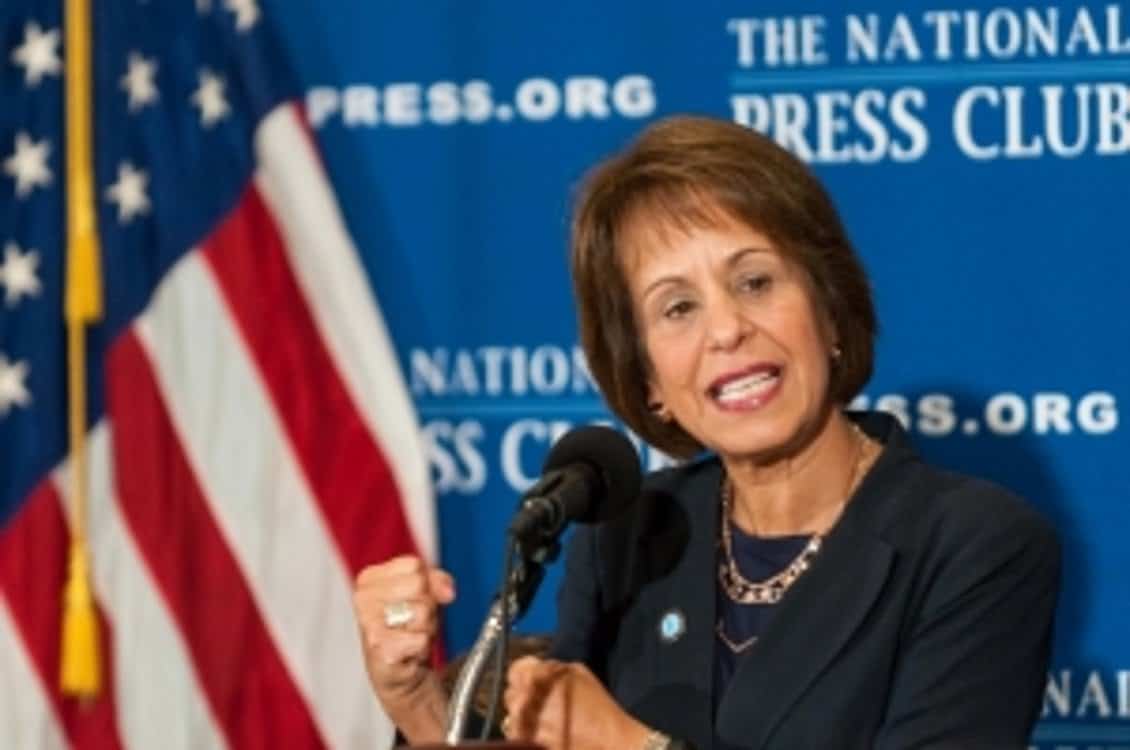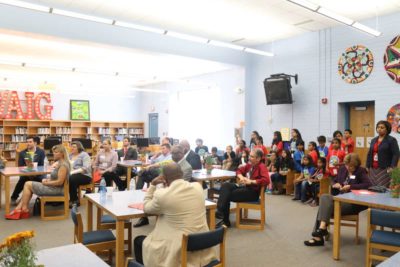
UNC-Chapel Hill Chancellor Carol Folt appeared at the National Press Club in Washington, DC, recently to emphasize the importance of public universities remaining accessible and affordable to students at all income levels. In the process, she also touched on the importance of the interaction between high schools and higher education.
Why go to college?
What’s college for?
What good does it do?
The answers don’t see quite so clear these days.
Still, North Carolina needs crucial conversations to elevate knowledge and clarity about the importance of higher education for school boards, principals, teachers, guidance counselors, students, and parents.
With the United States – and North Carolina – still in a ragged recovery from the great recession that technically ended nationally six years ago, it is a moment of sober, dispiriting news for parents and young people, pondering their futures. Consider, for example, the analyses that suggest the nation has entered an “era of job gentrification,’’ in which there is a “cruel game of musical chairs in the U.S. labor market.” The Washington Center for Equitable Growth describes a labor market in which “the best-educated workers (are) increasingly filling jobs lower and lower on the job ladder,’’ in the process displacing people without a college degree.
Meanwhile, data from the National Center for Education Statistics show that students from affluent families graduate with a bachelor’s degree at a higher rate than students from low-income families. Such data have led analysts to worry that higher education has the effect of widening, rather than narrowing, wealth, income, and racial gaps.
“It’s an unofficial sorting that takes place,” said Folt, “and it isn’t helpful. It tends to reinforce the socioeconomic gaps.”
The chancellor told her Washington audience about efforts that the University of North Carolina at Chapel Hill has made to create access and affordability. She outlined the Carolina Covenant that combines grants, scholarships, and work-study jobs to enable students from low-income families to graduate without debt. She also hailed the Carolina Advising Corps, which places recent UNC graduates in 65 of the 90 public high schools with the lowest-income enrollment in the state to provide college-going guidance.
“If you want to solve these problems, you can’t start with the applicants” to the university, she said, “you need to get into the high schools.” She added, “I don’t believe low-income students should be put into a less than great education.”
But does everyone need to go to a four-year university? Well, of course not. But it’s difficult to foresee North Carolina expanding and strengthening its broad, productive, civic-engaged middle-class without dramatically increasing the share of its population with a post-high school credential or degree. Folt pointed out that that she began her own education beyond high school by enrolling in a two-year institution before earning university degrees.
Data continue to show that the more you know, the more you earn – maybe not in your first or second job out of community college or a university, but over the arc of your career. Garrison Keilor had a long-running joke on Prairie Home Companion about the woeful job prospects of English majors. Still, higher education is ultimately about propelling young people not simply into their first jobs but into a career and an enriched life. College graduates, in aggregate, have distinctly higher earnings and lower unemployment than their peers without degrees or job-ready credentials.
By itself, education may not have the potency to solve all the fluctuations of the labor market. The U.S. – and North Carolina – need more good, well-paying jobs. But a state’s investment in education – in public schools from preK through university – can create the conditions that make it more attractive to enterprises that produce well-paying, high-end jobs.
“The new knowledge economy, the one that is bursting and growing, the one the country wants to compete in, is requiring the skills of a college graduate,” said Folt.
And yet, North Carolina joins with other states in having their universities rely more on tuition and less on state funding. In February, the Board of Governors approved a 4.3 percent increase in tuition and fees across the UNC system. North Carolina’s inflation-adjusted average university tuition has gone up by 35 percent since 2008, according to the Center on Budget and Policy Priorities.
While saying that UNC-Chapel Hill has absorbed budget cuts of 30 percent over the past five years, Folt was careful to say that North Carolina remains “a very generous state’’ to its universities. In turn, its public universities have provided intellectual infrastructure to undergird North Carolina’s advancement into the top tier of American states.
A footnote: In the question-and-answer session after her speech, Folt was asked what high schools could do to prepare students better for success in higher education. First, she said, “I think we need to teach students in high school how to write and think critically,” then added that the rise of the “online world’’ has distracted from that task. Then, she expressed support for smaller class sizes “to have engaged learning.”
“We need to pay our K-12 teachers more, if they’re going to be held to a higher standard that I believe is really right,” said the chancellor. She seemed to finish, caught herself that she had left something out, and ended by saying that of course high schools students also need a strong grounding in algebra and math.
For video of complete remarks of Chancellor Folt at National Press Club go here.
Essays on education and the labor market can be found here and here.
Recommended reading



